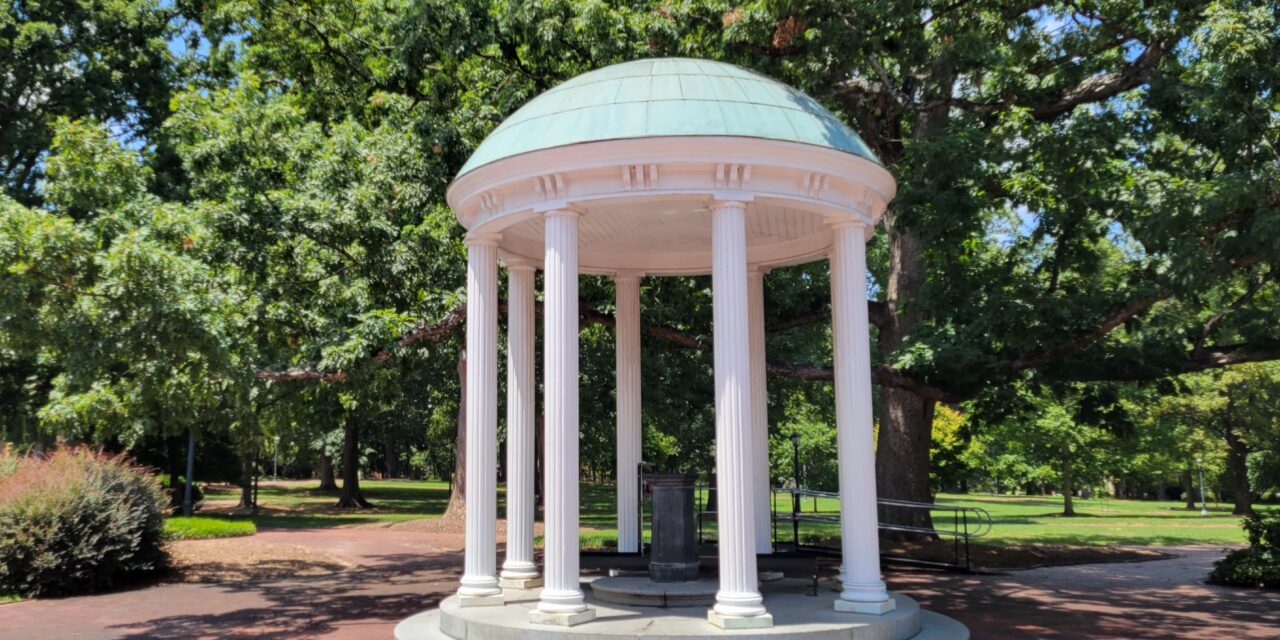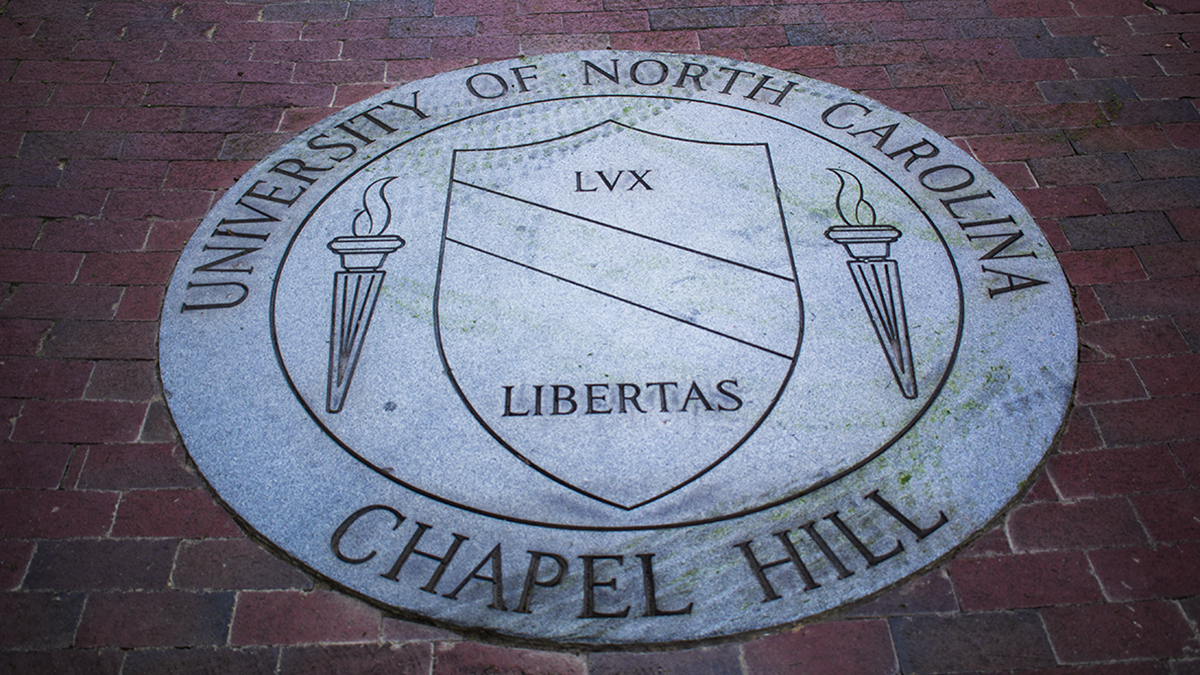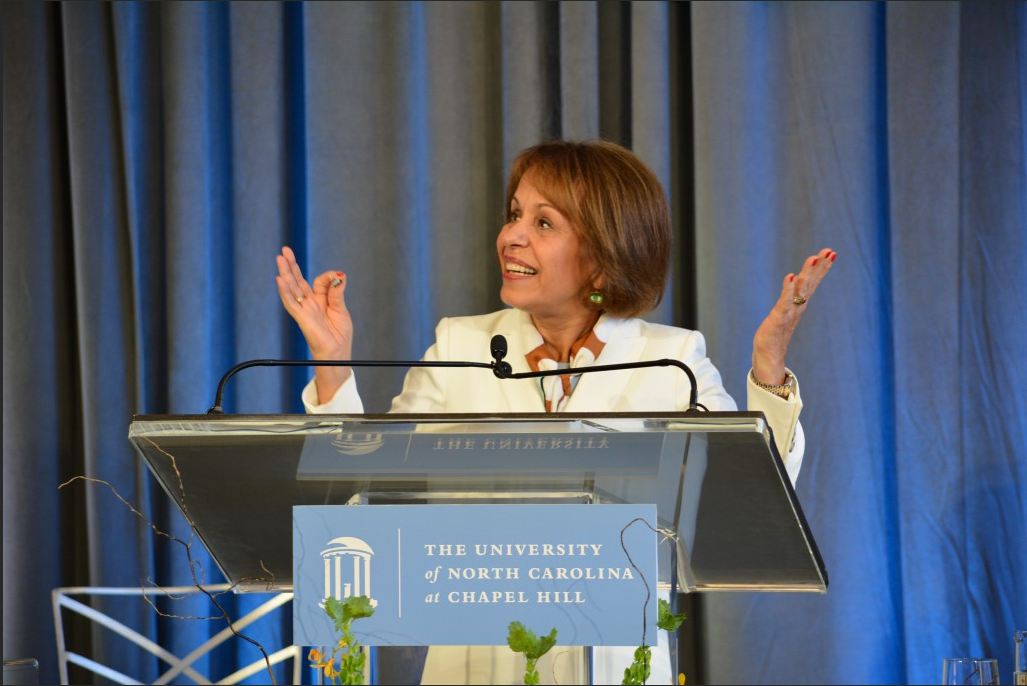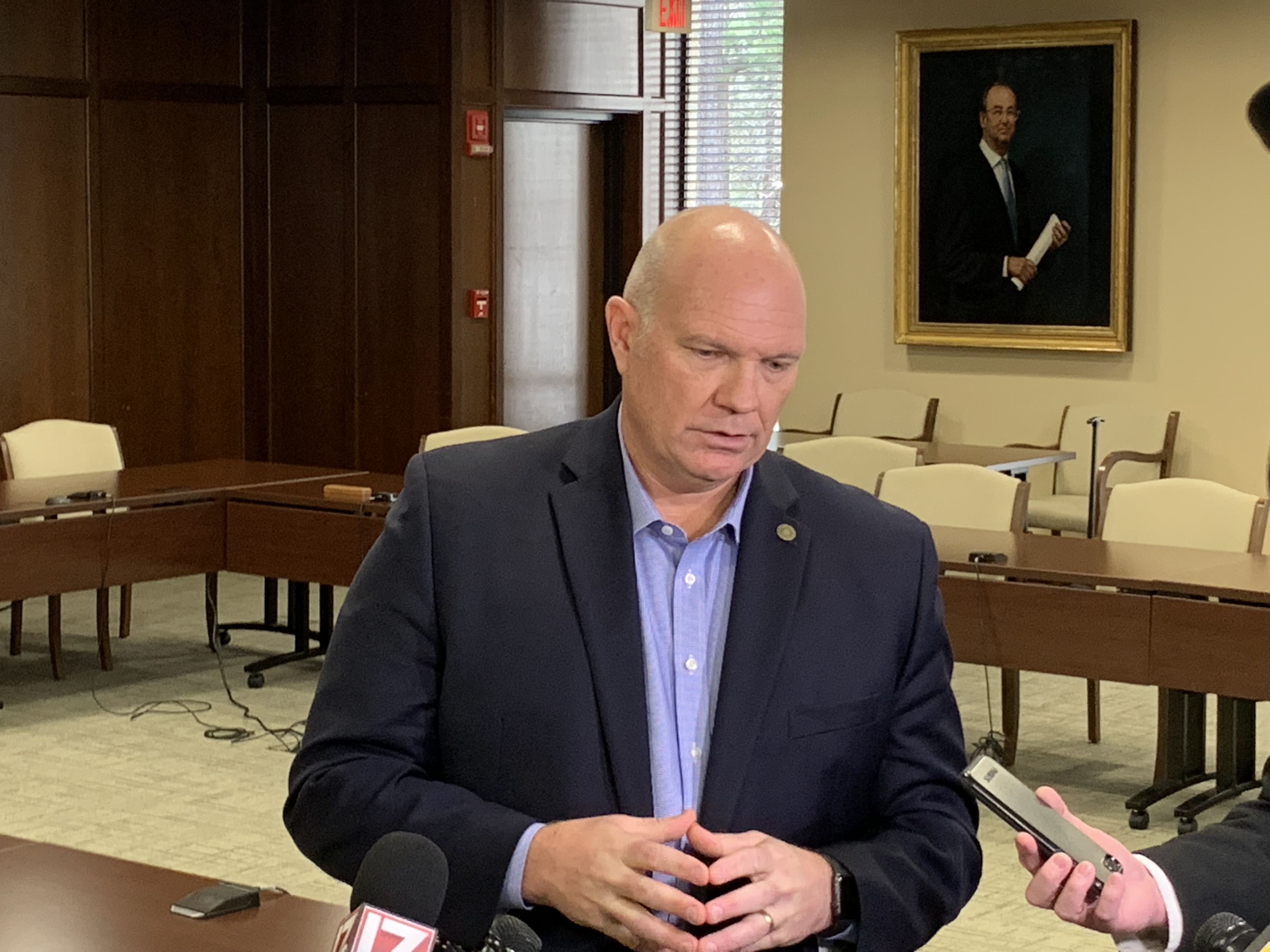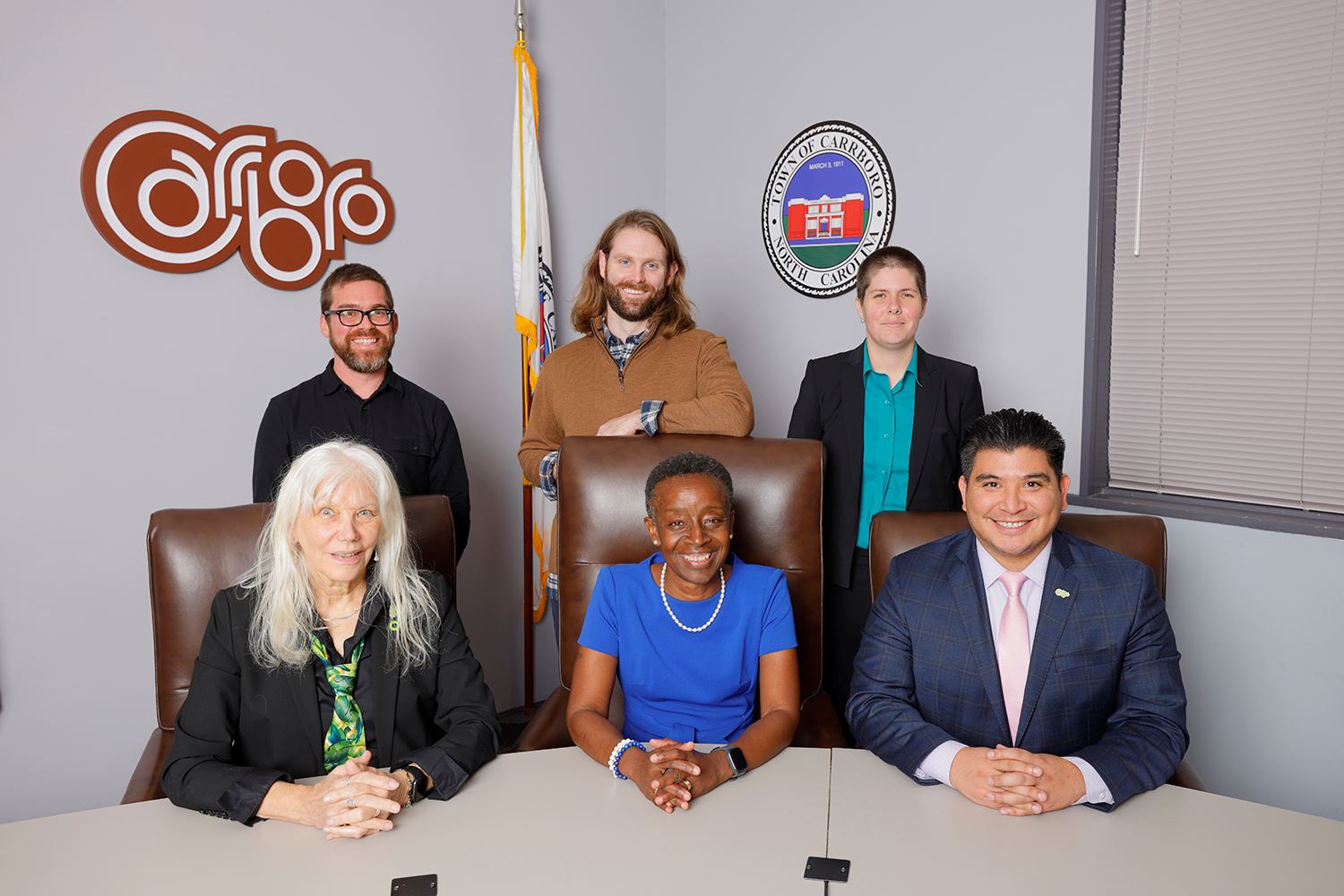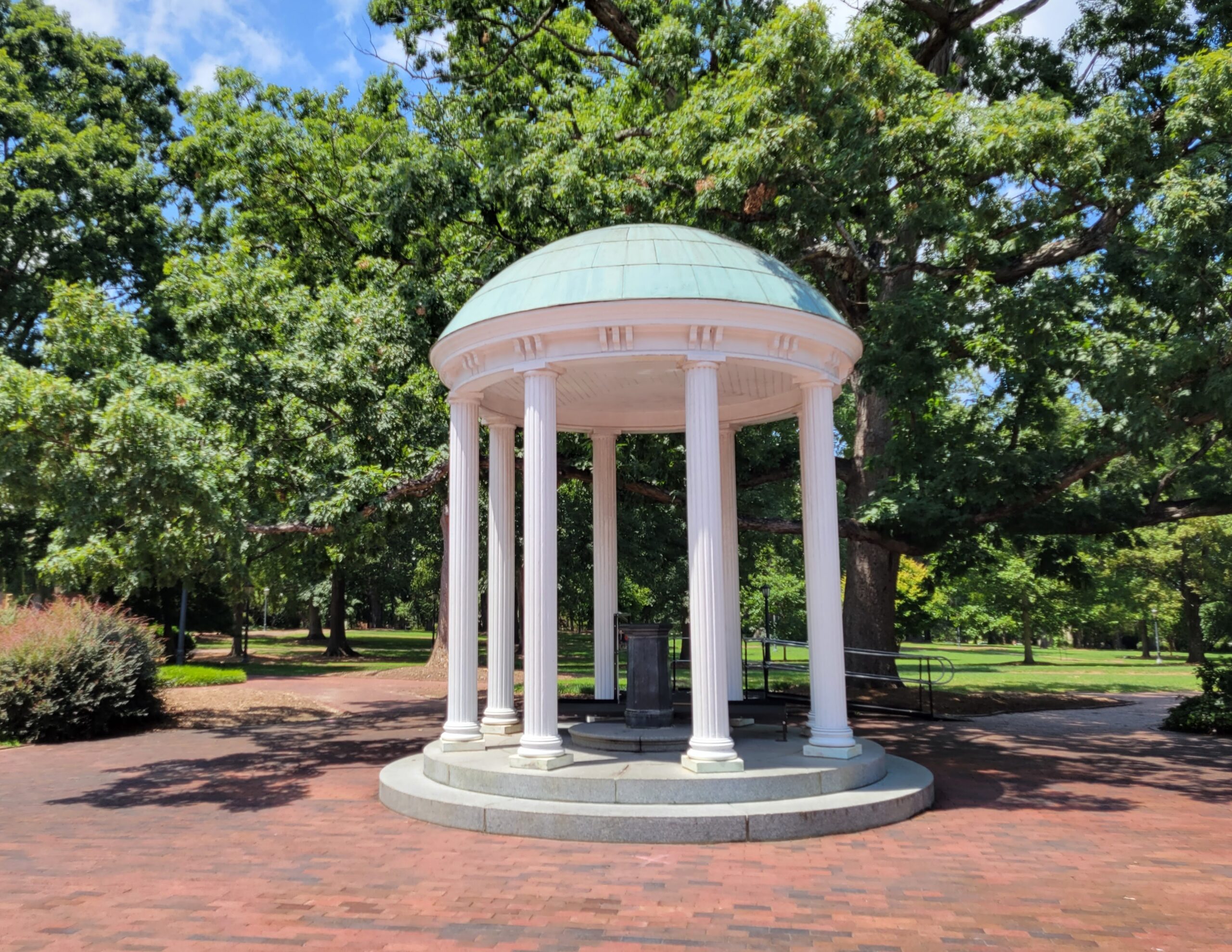In this age of advanced technology, it has become increasingly easy for law enforcement to monitor social media posts and online communications for possible threats. But that means law enforcement is also increasingly able to monitor online posts for other purposes as well.
At what point should that ability be raising concerns about our rights to privacy and freedom of speech?
This week, a troubling article from the Dallas Morning News uncovered details about a program called Social Sentinel (now called Navigate360), which has been employed by at least three dozen universities – including UNC – to check students’ social media accounts. (UNC still employs the service, though a spokesperson for the university says the contract will not be renewed when it expires in October.)
The program was marketed as a way for schools to check social media to find students who might be threatening to harm themselves or others. But investigative reporters found that the service was also marketed – and used – to monitor student demonstrations, sometimes with the intent of “mitigating” and “forestalling” protests.
And while there’s no evidence any university actually went this far, reporters found the company behind Social Sentinel also went further – telling schools it was possible to surveil students’ private email messages, as well as their public social media posts.
Ari Sen is the co-author of the article, “Tracked: How Colleges Use AI to Monitor Student Protests.” He’s also a UNC alum whose interest in the subject began while observing the Silent Sam protests in 2017-18.
97.9 The Hill’s Aaron Keck spoke with Sen about the article. Click here to listen to their conversation.
Aaron Keck: How did the story come to be?
Ari Sen: I was a student at UNC just a few years ago. The protests around Silent Sam were happening all around me; I got really interested and I started requesting documents from the university. I started to get thousands of pages of documents back, and inside of those documents was a contract for this Social Sentinel service. So I wrote a story about that, but that got me thinking: if UNC is using Social Sentinel to surveil campus protests, I bet a lot of other colleges are using this thing for that same purpose as well.
Keck: What did you learn?
Sen: We ended up collecting more than 56,000 pages of documents from schools all around the country. And we also spoke to school officials and experts. And what we learned is that Social Sentinel is marketed as not a surveillance or monitoring tool, (but) it often was being billed as a tool that could mitigate or forestall protests – and universities actually were using it for that purpose. We found that schools in North Carolina, schools in Georgia, schools all across the country were using this tool to surveil student protests and demonstrations.
Keck: What did you find with regard to UNC and the way that they were using it here in Chapel Hill?
Sen: In that first story I wrote in 2019, we revealed that UNC had used Social Sentinel, and we knew they had used some sort of social media monitoring tool to monitor Silent Sam protestors in 2017. This article also reveals that in 2018, around the time the statue was torn down, UNC Police were entering specific keywords related to the statue into the Social Sentinel service, to surface information about the statue protests.
Keck: I know this started with an investigation of UNC – but where does UNC stand with regard to other universities in the way that they use this program? Is UNC’s use different from the way other universities do it?
Sen: I would say that they’re very positive on the service. Many of the colleges we looked at have since canceled the use of the Social Sentinel service – but UNC still uses this tool, and that’s an outlier in itself. (Editor’s note: UNC has since told Chapelboro that they do not plan to renew the contract when it expires in October. See the university’s statement below.) You know, we found 37 colleges across the country that have used this service – although we think the (real) number may be higher – but not all of them were necessarily using this tool for surveilling campus protests. And at UNC that very much was the case.
Keck: Is Social Sentinel unique? Are there other services like that out there, that other universities may be using without actually participating with this particular company?
Sen: Yeah, there are. I’d say they’re more common in the K-12 space – and in the K-12 space, you also see things like getting into emails and Google Docs. There was a service called Geofeedia that did a very similar thing, and UNC seems to have used that service as well in coordination with the SBI, (to) track keywords and hashtags. And the emails that we obtained show that UNC was (also) asking SBI to track student protests with those keywords and hashtags back in 2015. Geofeedia actually got caught doing this by the ACLU in 2016, and they laid off half of their staff, they sort of imploded – but UNC’s use of (Social Sentinel) is almost a continuation of what Geofeedia (was) doing.
Keck: You mentioned email monitoring. This is something that we’ve heard about with regard to UNC earlier this year, with respect to faculty in that case. But I know that’s something you looked into as well, the extent to which colleges and universities are also using technology like this to look into students’ emails – which is a whole other level of privacy concern.
Sen: Absolutely. So what we found is that starting in about 2019, Social Sentinel started offering colleges the ability to monitor students’ university email accounts. We didn’t find a specific college that used that service, but we thought it was really relevant because, you know, they made a lot of pitches to schools. And like I said, we found 37 colleges that have used this service, and we didn’t get comprehensive documents for all of them. So it is very possible that there are colleges out there in the US, today or in the past, that have used this email monitoring service to monitor students’ private messages to each other.
Keck: With regard to social media, that information really is public because it’s social media, it’s out there in the world. So I can certainly understand, like, a department of public safety trying to justify this by saying, “look, we’re just monitoring public information. We’re not trying to disrupt protests or anything like that.” (But) it becomes egregious when, as you said, they start using this information to disrupt or forestall or prevent protests. When you’re talking with university officials – whether it’s UNC or other universities – what do they say? How do they justify the use of this technology?
Sen: It’s like you said: a lot of what I hear is, “well, this is just public information, there’s no real expectation of privacy there.” But you have two concerns here. One, it would be one thing if universities were telling students, “hey, we use this technology, we use it in an attempt to keep you safe.” But that’s not what we found. We found that basically no college affirmatively told students about this technology. Now there were some colleges where journalists were able to uncover the use of this service, like my article at UNC – but there was a real lack of transparency.
And even if we’re just talking about public information: what the experts I talked to really feared was, one, that students were going to be chilled, that they were going to be afraid to express themselves online. And two: police might be able to track networks. If you see this person is tweeting at that person, to coordinate a demonstration, you can actually sort of build the whole network of an activist group or a protest group. And we don’t know what the police department might do with that information later on.
Keck: I’m glad you mentioned transparency. I’m also thinking of our news director Brighton McConnell: he tweeted just the other day that when he was (a student) at UNC, speaking with student demonstrators, they often said they had the feeling that they were being monitored by the university. And this confirms what they had been thinking this whole time.
Sen: I heard those same concerns while I was there. I had students telling me, “you know, we think we’re on a list. We think we’re being targeted specifically.” And when I found that Social Sentinel contract – it really did confirm a lot of those suspicions that a lot of those activists had had.
Keck: Have you spoken with UNC officials? What have they said?
Sen: They sent a sort of standard PR statement. But in 2020, I asked Chancellor Kevin Guskiewicz about this, and the former police chief David Perry. And it’s important to note here that David Perry was also the police chief at Florida State, which also had this service – so he continued the use of this service, although the use of this service at UNC predated him. But what I asked them is, “Hey, have you ever detected any sort of violence with Social Sentinel?” And they couldn’t name any instances. Now, David Perry talked about an instance at Florida State, and we have a story coming out pretty soon, which will dive into that a little bit. But they couldn’t name any instances when this service had prevented violence or a crime at UNC.
Following Keck’s conversation with Sen, Chapelboro received a statement from UNC Media Relations. It reads, in full:
“The University uses Social Sentinel (now Navigate360) to identify threatening or concerning public social media posts surrounding events and campus activities that require campus public safety. The University does not and has not used the service to monitor student email. The resource is an industry best practice, only uses public information and does not collect private personal information. The University coordinates with and relies on assistance from state and federal law enforcement agencies when appropriate in order to ensure campus safety.
“The University’s current contract with Navigate360 ends in October and the contract will not be renewed.”
Chapelboro.com does not charge subscription fees, and you can directly support our efforts in local journalism here. Want more of what you see on Chapelboro? Let us bring free local news and community information to you by signing up for our biweekly newsletter.

